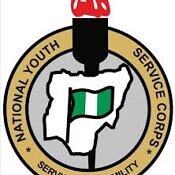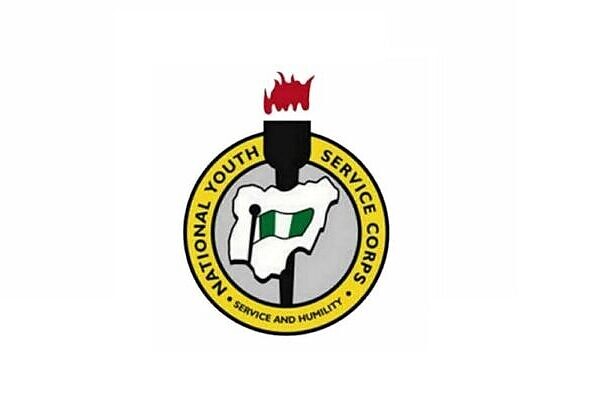- Government Organisation
- Sokoto, Nigeria

NYSC Orientation Camp Sokoto State
The NYSC Permanent Orientation Camp in Sokoto State is situated at Wamakko, within the Wamakko Local Government Area. The camp serves as a vital center for new corps members, providing a conducive environment for the three-week orientation program.
Transportation:
- Air Travel: The state is served by Sadiq Abubakar III International Airport, located in Sokoto City. The airport offers both domestic and limited international flights, making it convenient for corps members traveling from various parts of Nigeria and beyond.
- Road Travel: Sokoto State is accessible by road, with several major bus services operating routes to and from the capital, Sokoto City. The road network within the state is fairly developed, with major highways linking the state to neighboring states such as Kebbi and Zamfara.
Sokoto State Overview
Geopolitical Position: Sokoto State is part of Nigeria’s north-west geopolitical zone. It shares international borders with the Republic of Niger to the north, providing a unique blend of cultural exchanges and historical ties. The state is bordered by Kebbi State to the west and south, and Zamfara State to the south and east. Sokoto is strategically positioned, acting as a gateway between Nigeria and its northern neighbors.
Administrative Structure: Sokoto State comprises 23 Local Government Areas, each with its unique administrative and cultural characteristics. These local governments play a crucial role in the governance and development of the state.
People and Culture
Ethnic Composition: Sokoto State is predominantly inhabited by the Hausa and Fulani ethnic groups, both of which have rich cultural heritages that contribute significantly to the state’s identity. Minority groups such as the Zabarmawa and Tuareg also reside in the state, with Hausa serving as the lingua franca across these communities.
Economic Activities: Agriculture is the backbone of Sokoto’s economy. The state is known for its production of cash crops like sorghum, millet, and groundnuts, which are not only consumed locally but also exported to other parts of the country. In addition to crop farming, the people of Sokoto engage in extensive animal husbandry, raising cattle, sheep, and goats, which are essential to both the local diet and economy.
Geography and Climate
Vegetation: Sokoto State falls within the Sudan Savannah zone, characterized by open grasslands with scattered trees. This vegetation type is well-suited to the state’s climatic conditions and agricultural practices.
Climate: The climate of Sokoto State is typically tropical, with two distinct seasons: the rainy season and the dry season.
- Dry Season: The dry season begins in October and can last up to April or May, depending on the specific area within the state. During this period, the Harmattan winds, blowing from the Sahara Desert, bring dry and dusty conditions.
- Rainy Season: The rainy season generally starts in May and ends around September or October. The rains are essential for agriculture, replenishing the soil and supporting crop growth.
Topography: Sokoto State’s landscape is dominated by the Hausa plains, which extend across much of Northern Nigeria. These plains are relatively flat, making them suitable for both agriculture and settlement.
Notable Places in Sokoto State
Sokoto State is home to several cities and towns of historical and cultural significance:
- Yabo: Known for its traditional leadership and historical sites.
- Guddu: A vibrant town with a strong agricultural base.
- Ilela: A border town that plays a key role in cross-border trade with Niger.
- Binji, Gwada Bawa, Bogingo, Tambulwal, and Wurno: These towns contribute to the state’s cultural and economic landscape.
Tourist Attractions:
- Surame: An ancient city that was once the capital of the powerful Kebbi Kingdom.
- Waziri Junaidu History & Culture Museum: A museum that offers insight into the rich history and culture of the Sokoto Caliphate.
- Akalawa: A historical site known for its ancient ruins.
- Sultan of Sokoto Palace: The residence of the Sultan of Sokoto, a significant religious and cultural leader in Nigeria.
- Sokoto Museum: A repository of the state’s history, showcasing artifacts and relics from the Sokoto Caliphate era.
- Heritage Museum: Another key cultural institution in the state.
- Gilbadi Rocks: A natural formation that attracts both tourists and geologists.
Educational Institutions: Sokoto State is home to several higher institutions of learning, including:
- Usman Danfodio University: A federal university known for its academic excellence and research contributions.
- Sokoto State University: A state-owned institution offering a range of undergraduate and postgraduate programs.
Interesting Fact
The name “Sokoto” is an anglicized version of the local name “Sakkwato,” which is derived from the Arabic word “suk,” meaning “market.” This reflects the state’s historical role as a center of trade and commerce in the region.
Accessibility and Amenities
Accessibility:
- Wheelchair-accessible car park: The camp and major sites in the state are equipped with facilities to accommodate individuals with mobility challenges.
- Wheelchair-accessible entrance: Ensuring ease of access to various buildings and public spaces.
Amenities:
- Barbecue Grill: Available at various recreation centers and parks.
- Basketball Court: Found in some hotels and public sports facilities.
- Tennis Court: Available for sports enthusiasts in select locations.
- Public Toilet: Accessible in key areas, ensuring convenience for visitors.
- Volleyball Court: Often found in recreational areas, providing opportunities for team sports.
Business Amenities
- Car Parking
-
 Government Organisation
Government Organisation
Contact Information
Opening Hours
Contact Business
Contact Business
Additional Information
Additional info







